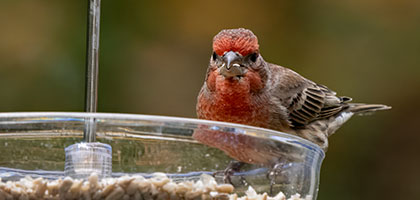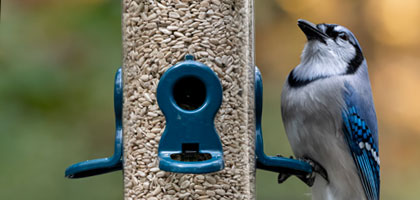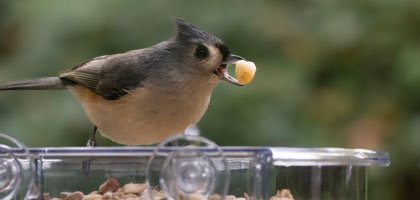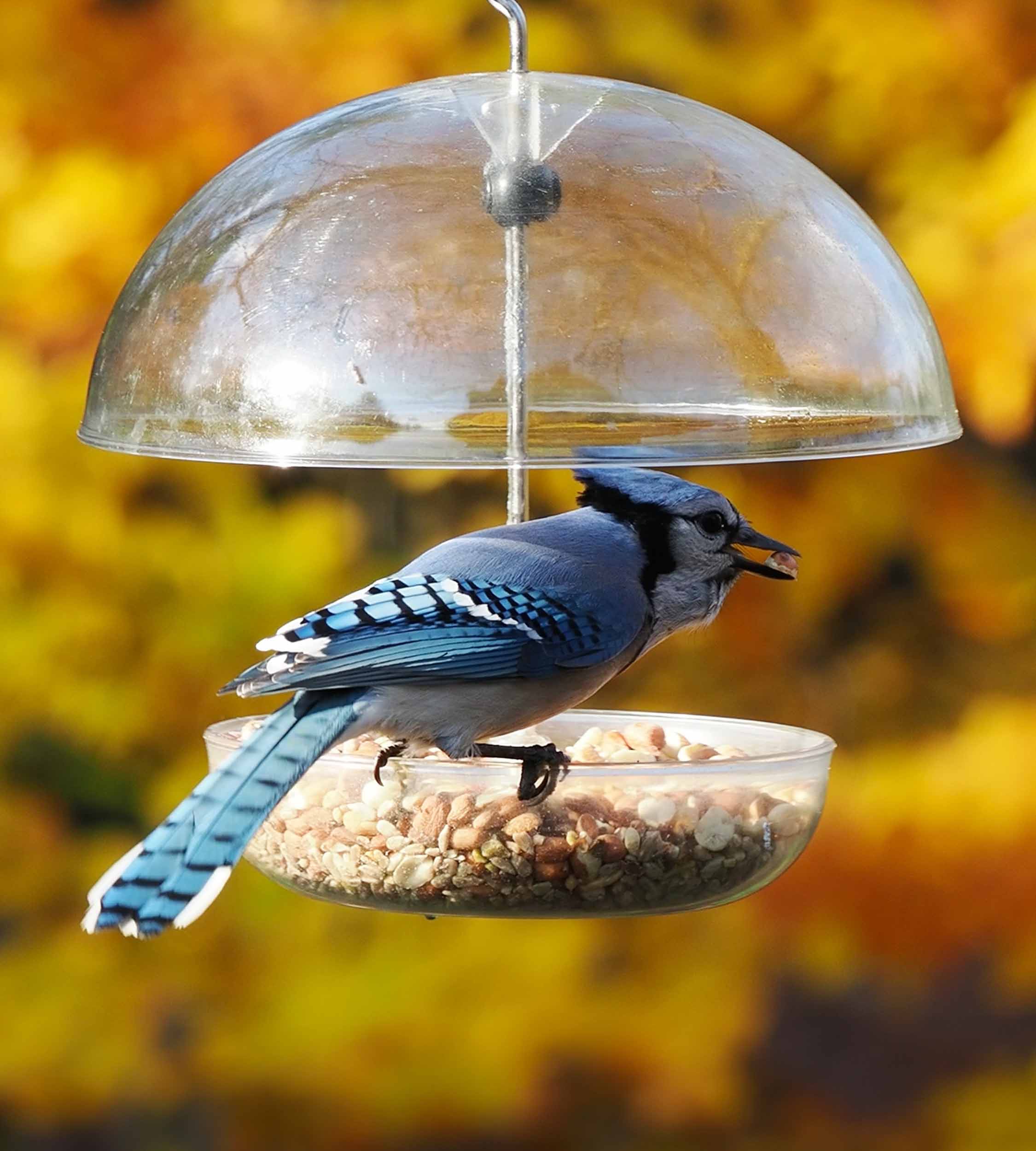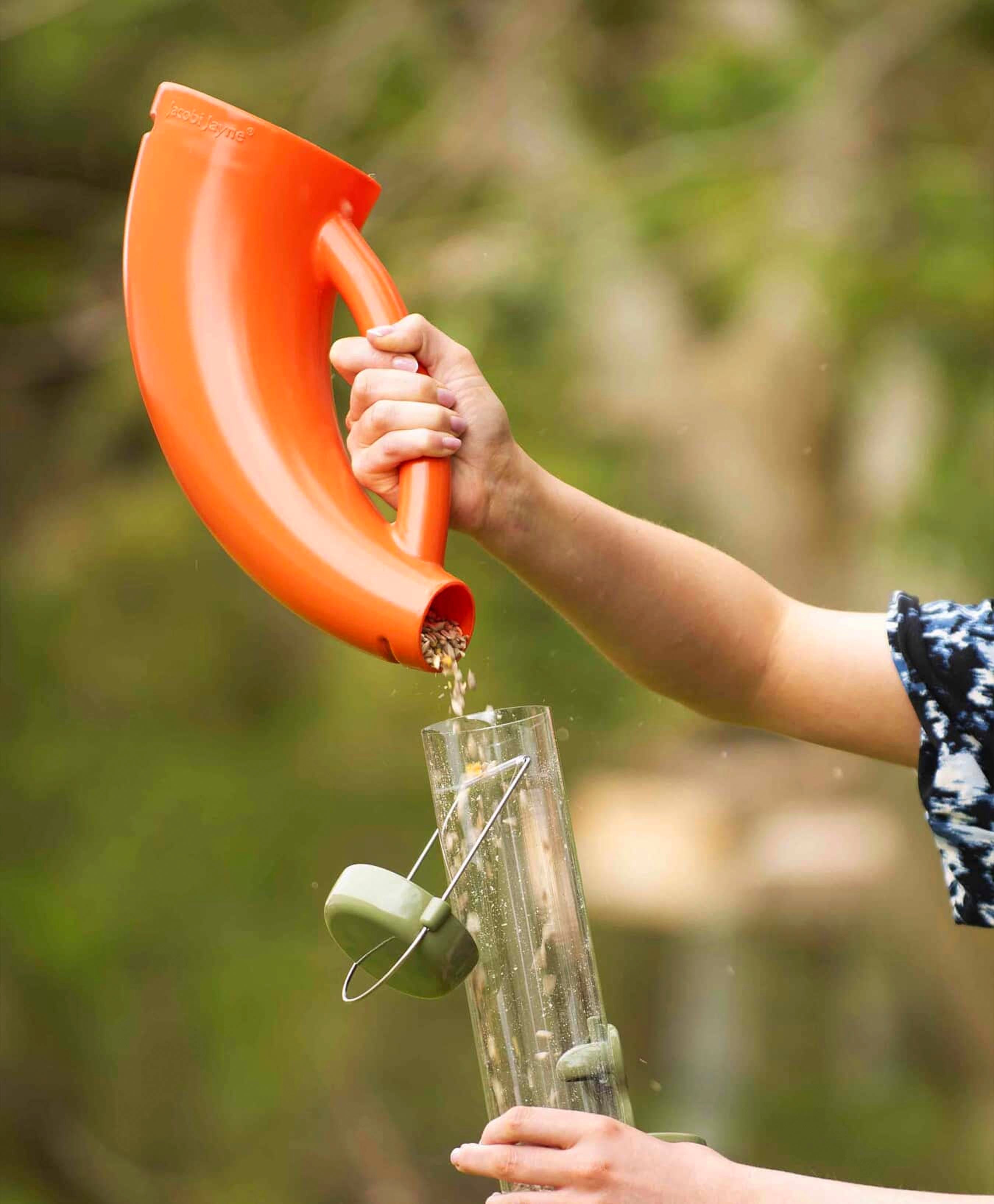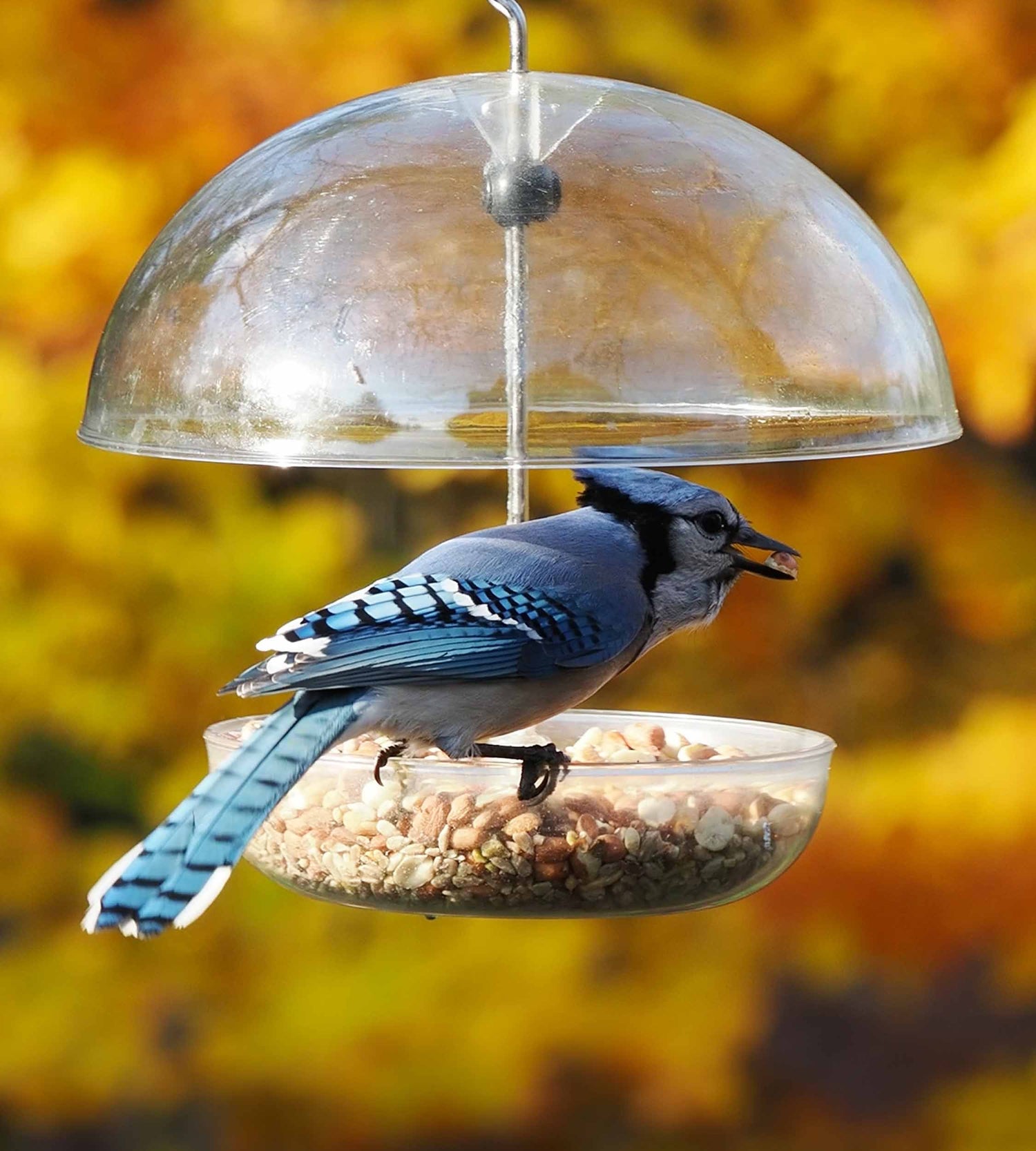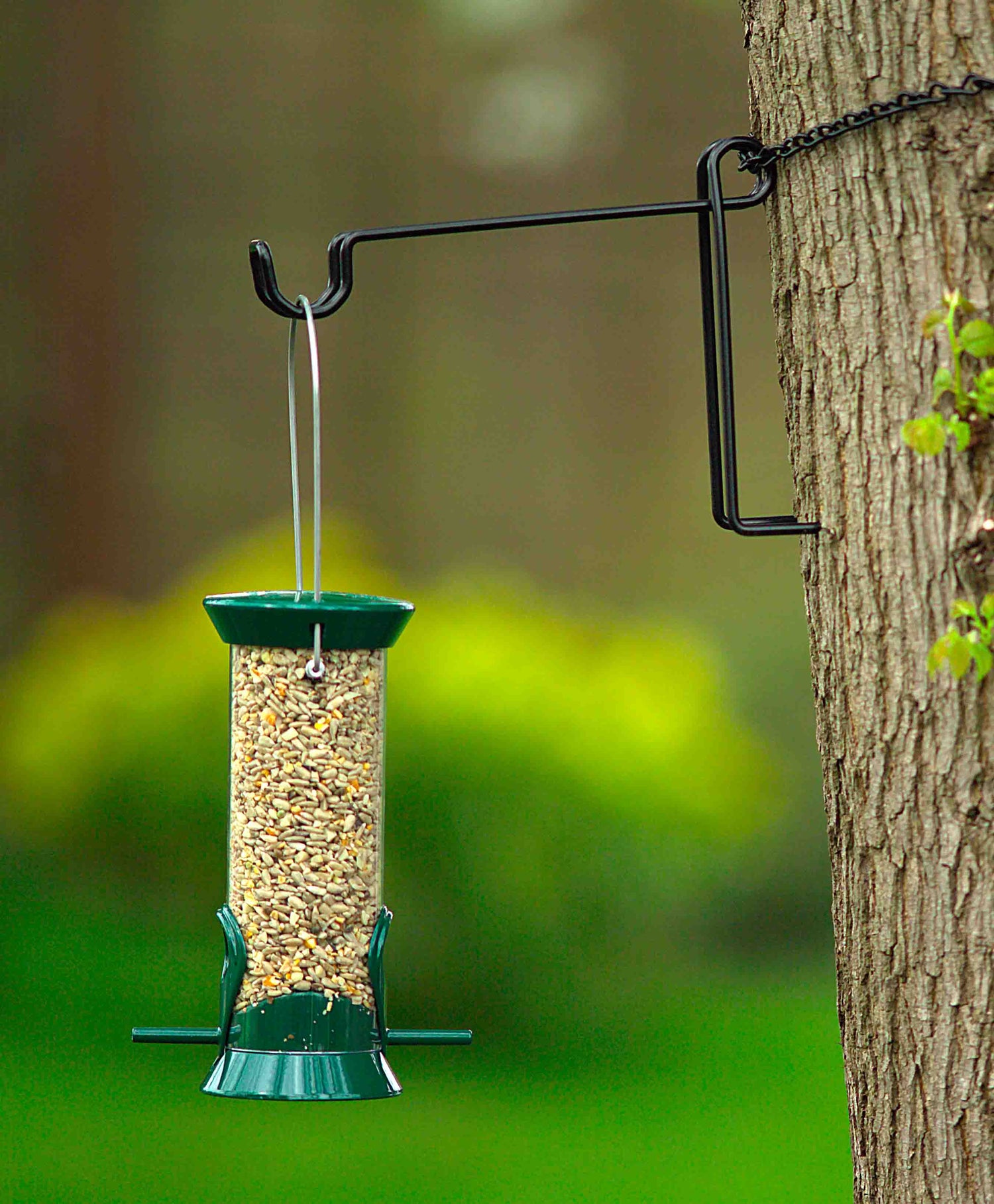Feeding birds can be a rewarding experience. It's a chance to observe these fascinating creatures up close.
But what should you feed them? Specifically, what fruit is good for birds?
This guide will answer that question. It will provide a comprehensive list of safe and nutritious fruits for birds.
We'll also discuss the use of fruit tree netting, the role of dried fruit, and the importance of fruit for birds in winter. Let's dive in.
Understanding the Avian Diet
Birds have diverse dietary needs. Their diet often includes fruits, seeds, nuts, insects, and grains.
Understanding these needs is essential for providing balanced nutrition.
Fruits offer vitamins and natural sugars that benefit birds' energy levels and overall health.
It's important to cater to their species-specific needs. Offering variety ensures they get a well-rounded diet.
By understanding these dietary nuances, you can support birds' health and well-being effectively.
Safe and Nutritious Fruits for Birds
Birds can enjoy a variety of fruits that are both safe and nutritious. These fruits provide essential nutrients and vitamins crucial for their health.
However, not all fruits are beneficial. Selecting the right fruit types is important for ensuring safety and health.
Here are some safe and nutritious fruits to offer birds:
- Apples
- Pears
- Berries
- Citrus fruits
- Grapes
- Stone fruits
- Tropical fruits
To maximize benefits, cut fruits into small, bite-sized pieces. This helps prevent choking and makes it easier for birds to consume.
Always wash fruits thoroughly before offering them to birds. This helps remove pesticide residues that could be harmful.
Apples and Pears
Apples and pears are two fruits that birds love. They are nutrient-rich and easy to serve.
Always remove apple seeds before offering, as they contain cyanide. Present them in small, manageable slices.
Berries: A Bird Favorite
Berries, like blueberries and strawberries, are rich in antioxidants. Birds are naturally drawn to their vibrant colors and sweet taste.
They can be offered whole or sliced. Berries are ideal for most bird species, providing numerous health benefits.
Citrus Fruits: Moderation is Key
Citrus fruits like oranges and tangerines should be served sparingly. Their high acidity might upset some birds' stomachs.
Offer small citrus pieces and observe for any adverse reactions. Variety helps balance their diet while mitigating potential issues.
Grapes: A Treat with Caution
Grapes are a delightful treat for many birds. They are juicy and provide a quick energy boost.
However, grapes should be given in limited quantities. Overconsumption might lead to digestive issues for some species.
Stone Fruits: Pit Removal is a Must
Stone fruits like cherries and peaches are excellent fruit choices. They need a bit of preparation before serving to birds.
Always remove the pits, as they can be toxic. Offer the flesh in small pieces for easy consumption.
Tropical Fruits for Exotic Flavors
Tropical fruits like mangoes and papayas bring exotic flavors to a bird's diet. They offer vitamins and enrich the diet with variety.
Peel and remove any seeds or pits before serving. Make sure the portions are bird-friendly and accessible.
Dried Fruit for Birds: What You Need to Know
Dried fruit offers a convenient alternative to fresh fruit, especially in seasons when fresh options are scarce. It's an ideal choice for bird enthusiasts looking for a long-lasting food supply.
When selecting dried fruit for birds, ensure it's unsweetened and free from preservatives. Added sugars and chemicals can harm birds.
Popular dried fruit options include raisins, sultanas, and dried berries. However, always soak these fruits before offering to prevent choking.
Here are some tips for selecting dried fruit for birds:
- Choose unsulfured varieties
- Avoid artificial additives
- Soak to soften before serving
Dried fruit can complement other food sources in your bird's diet. Offer these fruits in moderation to maintain balance.
Best Dried Fruit for Wild Birds
Wild birds benefit from the nutrients found in dried fruits. They are a versatile and accessible option for feeding during colder months.
For wild birds, consider using unsulfured apple slices and banana chips. Dried berries are another excellent option for energy. These fruits are not only nutritious but also easy for wild birds to digest.
Offering a variety of dried fruits keeps their diet interesting and appealing. Always monitor their intake to ensure they thrive.
Fruit for Birds in Winter
Winter poses challenges for birds as natural food sources dwindle. Offering fruit during this season can be crucial for their survival. Opt for fruits high in energy and nutrients, such as apples and berries, to help birds sustain their energy levels.
Fruits like coconut, with higher fat content, are particularly beneficial in the cold. Remember to clean up any uneaten fruit to avoid attracting pests or causing harm. By supporting birds with nutritious winter offerings, you can play a vital role in their well-being.
The Role of Fruit Tree Netting for Birds
Fruit tree netting is an effective way to protect your fruit crops from birds. It provides a barrier that prevents them from eating the fruit directly from the tree. However, it's vital to choose bird-friendly netting to avoid harming them.
Improperly installed or harsh netting can entangle and injure birds. Opt for netting with a fine mesh and bright colors so birds can easily see it. By using netting responsibly, you protect your harvest while allowing birds to feed on fallen fruit safely.
Preparing and Offering Fruit to Birds
When offering fruit to birds, preparation is key. Always wash the fruit thoroughly to remove pesticides and chemicals. Cut the fruit into small, manageable pieces to prevent choking hazards, ensuring it's easy for birds to eat.
Consider the preferences of different bird species when selecting fruit. Offer a variety to attract diverse species. Place fruit in feeders or scatter on the ground for ground-feeding birds. Always balance fruit offerings with other food like seeds and insects to provide a well-rounded diet.
Toxic Fruits to Avoid
Not all fruits are safe for birds. Some can pose serious health risks.
Avoid giving birds any fruit with seeds or pits that contain cyanide, like apple seeds and cherry pits.
Here is a list of fruits to avoid:
- Avocado
- Rhubarb
- Caffeine-containing fruits
- Fruit seeds and pits
Always research or consult an expert when unsure about a fruit. Protecting birds from harmful foods is crucial for their health and wellbeing. Educating yourself and others can make a significant difference.
Attracting Birds with Fruit: Tips and Tricks
Creating a bird-friendly environment enhances your garden's allure. Placing fresh, chopped fruits in feeders or trays helps attract a range of bird species. Consistent fruit offerings encourage birds to visit regularly.
Incorporate native fruit-bearing plants to naturally entice birds. These plants provide fruits and act as a natural habitat. Ensure water is available nearby to complement the food supply. By fostering a welcoming atmosphere, you'll enjoy the beauty and activity of birds year-round.
Conclusion: The Joy of Feeding Birds Fruit
Feeding birds fruit brings life and vibrancy to any space. It supports birds' health and nutrition while offering endless enjoyment for observers. By selecting safe and nutritious fruit options, you contribute positively to local bird populations. Embrace the joy of birdwatching and connect with nature through this rewarding practice.
